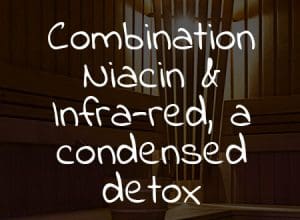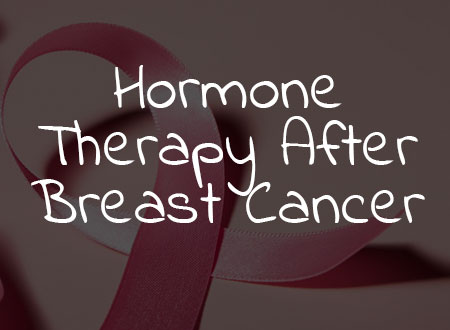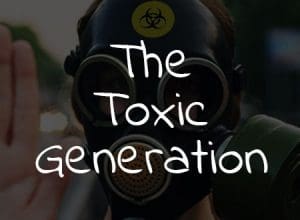



Conflicting studies and negative media reports have done it again. Even specialists are confused about prescribing hormone replacement therapy to survivors of breast cancer.
The phrase “adding fuel to the fire” is almost becoming a cliché in the context of hormone replacement therapy (HRT) and breast cancer. Unnaturally high levels of the hormone estrogen are widely known to play a part in causing breast cancer. So, many oncologists and specialists, sometimes influenced by sensationalist media reports, still believe breast cancer survivors should stay away from HRT that includes estrogen in case their cancer worsens or recurs. But should they?
Perhaps the phrase “throwing the baby out with the bathwater” is more appropriate. Maintaining a healthy hormone balance, which includes natural estrogen, is absolutely vital for any woman – breast cancer survivor or not. If more cancer occurs in those with normal hormone levels, it’s not because the hormones themselves are necessarily causing them. It’s because a hormone deficiency slows everything in the body down, including the cancer growth. What successful hormone treatment depends on is the careful monitoring of all hormone levels and making sure that the replacement hormones are not foreign to the body. For more than a decade, integrative and preventive medicine specialists have been advocating this view, but it still seems as though it hasn’t quite filtered into conventional practice yet.
Given the uncertainty of the research, one can hardly blame specialists like Dr Guidozzi and his peers for their hesitation. But it’s also worth mentioning that all the studies he mentions focused on testing the effect of pharmaceutically produced, synthetic hormones on breast cancer. In light of this, it’s perhaps not surprising that some of them produced worrying results. In fact, one of the most widely publicised investigations of the health effects of synthetic estrogen and progestin, called the Women’s Health Initiative Randomized Controlled Trial, was stopped in 2002 due to a sharp spike in the number of breast cancer cases among the otherwise healthy participants receiving these hormones.8

Since then, it’s almost become an accepted fact that HRT with synthetic hormones is risky business, because it significantly ups a woman’s chances of developing breast cancer. But that might be due to one (or both) of two possible reasons. Firstly, the hormone levels might not be monitored and balanced carefully enough, which means that the level of estrogen goes up so high that cancer does become a risk. Secondly, neither the replacement estrogen nor the replacement progesterone used in conventional HRT is bioidentical. They are synthetic molecules, which are foreign and unnatural to the body, which may trigger unwanted responses that could lead to cancer. And if synthetic hormones can cause cancer where previously there was none, just imagine what it would do in someone who is already vulnerable to the disease, having suffered from it before.
Another point that should be made is that a careful distinction is needed between the different kinds of estrogen, because not all estrogen is bad. The three kinds of estrogen found naturally in the body are estriol, estradiol and estrone, and each has its own function. Estradiol and estrone can damage DNA.9 High levels of these estrogens are therefore strongly linked to breast cancer and should be kept low in those who’ve either had the disease before, or who have a strong family history.10
Estriol, on the other hand, is a protective estrogen, the levels of which are high during pregnancy.11 Some of its protective qualities come from the fact that it blocks the estrogen-sensitive cells in the body and so keeps the damaging estradiol from binding with them. Higher levels of estriol may play a crucial role in preventing breast cancer from recurring. Progesterone has almost the same effect as estriol because this hormone also “down regulates” the estrogen receptors in the breasts and uterus.12
Testosterone, traditionally considered a “male” hormone, also has been shown to have breast cancer-fighting effects. That’s why it’s crucial for breast cancer survivors to ensure that their testosterone levels are checked, monitored and, if too low, restored with bioidentical testosterone cream.13
From this information, it’s clear that not all hormones, or hormone replacement therapies for that matter, are created equal in terms of their role in cancer. A careful and more informed approach to bioidentical hormone replacement could have far-reaching health benefits in breast cancer survivors and shouldn’t be discouraged offhand.


Watch Dr. Golding talk on Integrative and Anti-Aging Medicine.
Sign up for our newsletter to find out more about the exciting world of integrative medicine
